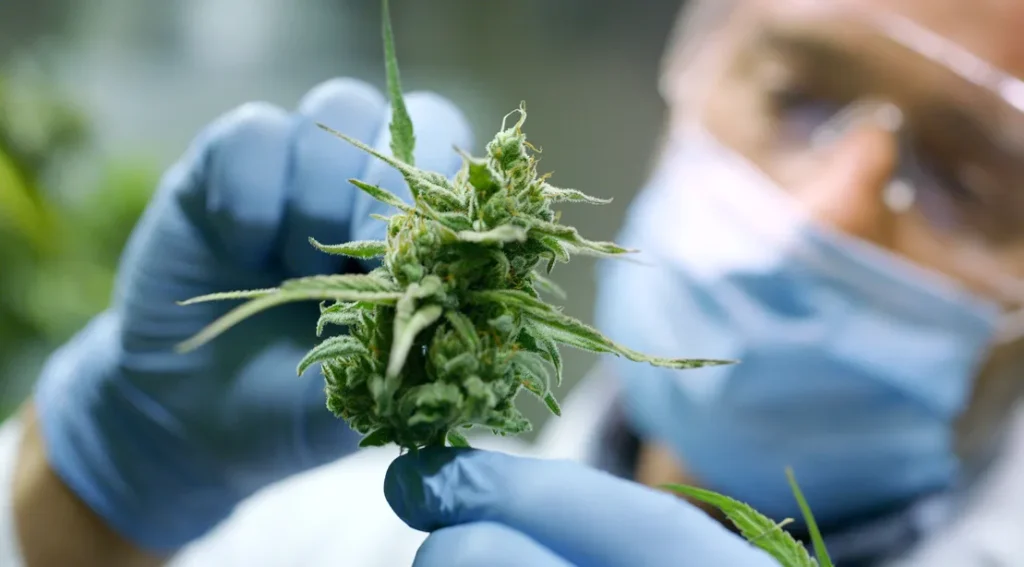 The use of cannabis in sports has long been a topic of controversy and speculation. While some athletes swear by its potential benefits for enhancing performance and aiding recovery, others remain skeptical due to concerns about its legality and potential adverse effects. In recent years, however, there has been a growing body of research shedding light on the effects of cannabis on athletic performance and recovery. Let’s explore what science has to say about this intriguing intersection of cannabis and athletics.
The use of cannabis in sports has long been a topic of controversy and speculation. While some athletes swear by its potential benefits for enhancing performance and aiding recovery, others remain skeptical due to concerns about its legality and potential adverse effects. In recent years, however, there has been a growing body of research shedding light on the effects of cannabis on athletic performance and recovery. Let’s explore what science has to say about this intriguing intersection of cannabis and athletics.
Understanding Cannabis and its Components
Cannabis, commonly referred to as marijuana, contains hundreds of chemical compounds known as cannabinoids. The two most well-known cannabinoids are tetrahydrocannabinol (THC) and cannabidiol (CBD). THC is responsible for the psychoactive effects of cannabis, while CBD is non-psychoactive and has been associated with various therapeutic properties, including pain relief and anti-inflammatory effects.
Effects of Cannabis on Athletic Performance
The relationship between cannabis use and athletic performance is complex and multifaceted. While some athletes claim that cannabis enhances their performance by increasing focus, reducing anxiety, and boosting endurance, scientific evidence on this topic is limited and often conflicting.
Pain Management and Recovery
One of the most well-documented benefits of products like Death Cookies Canada for athletes is its potential to alleviate pain and inflammation, which are common issues associated with intense physical training and competition. CBD, in particular, has been shown to have analgesic and anti-inflammatory properties, making it a popular choice among athletes for managing post-exercise soreness and speeding up recovery.
Potential Cognitive Effects
THC, the psychoactive component of cannabis, can affect cognitive function, including memory, attention, and decision-making. Some athletes believe that cannabis can help them enter a state of “flow” or hyper-focus during training or competition, leading to improved performance. However, excessive THC consumption may impair coordination and reaction time, potentially compromising athletic performance.
Anxiety Reduction
Many athletes experience performance anxiety before competitions, which can negatively impact their focus and confidence. Some anecdotal reports suggest that cannabis, particularly strains high in CBD, may help reduce pre-competition jitters and promote a sense of calmness and relaxation without impairing cognitive function.
Sleep Improvement
Quality sleep is essential for athletic performance and recovery. Cheap weed vape pen has been shown to have sedative properties that can promote relaxation and improve sleep quality. For athletes struggling with sleep disturbances, particularly due to pain or anxiety, cannabis may offer a natural and effective solution for enhancing rest and recovery.
Potential Risks and Considerations
Despite the potential benefits, it’s essential for athletes to consider the potential risks associated with infused joints Canada use, including impaired motor coordination, decreased reaction time, and regulatory issues in sports organizations that prohibit its use. Additionally, individual responses to cannabis can vary widely, and some athletes may experience adverse effects such as paranoia, dizziness, or decreased motivation.
Conclusion
The effects of cannabis on athletic performance and recovery are still not fully understood, and more research is needed to elucidate its potential benefits and risks. While some athletes may find cannabis products like Death Cookies Canada helpful for managing pain, anxiety, and sleep disturbances, others may experience negative effects that hinder their performance. Ultimately, athletes should approach cannabis use with caution, considering their individual needs, goals, and the regulations of their respective sports organizations. As our understanding of cannabis continues to evolve, it’s essential for athletes to stay informed and make informed decisions about its role in their training and recovery regimens.